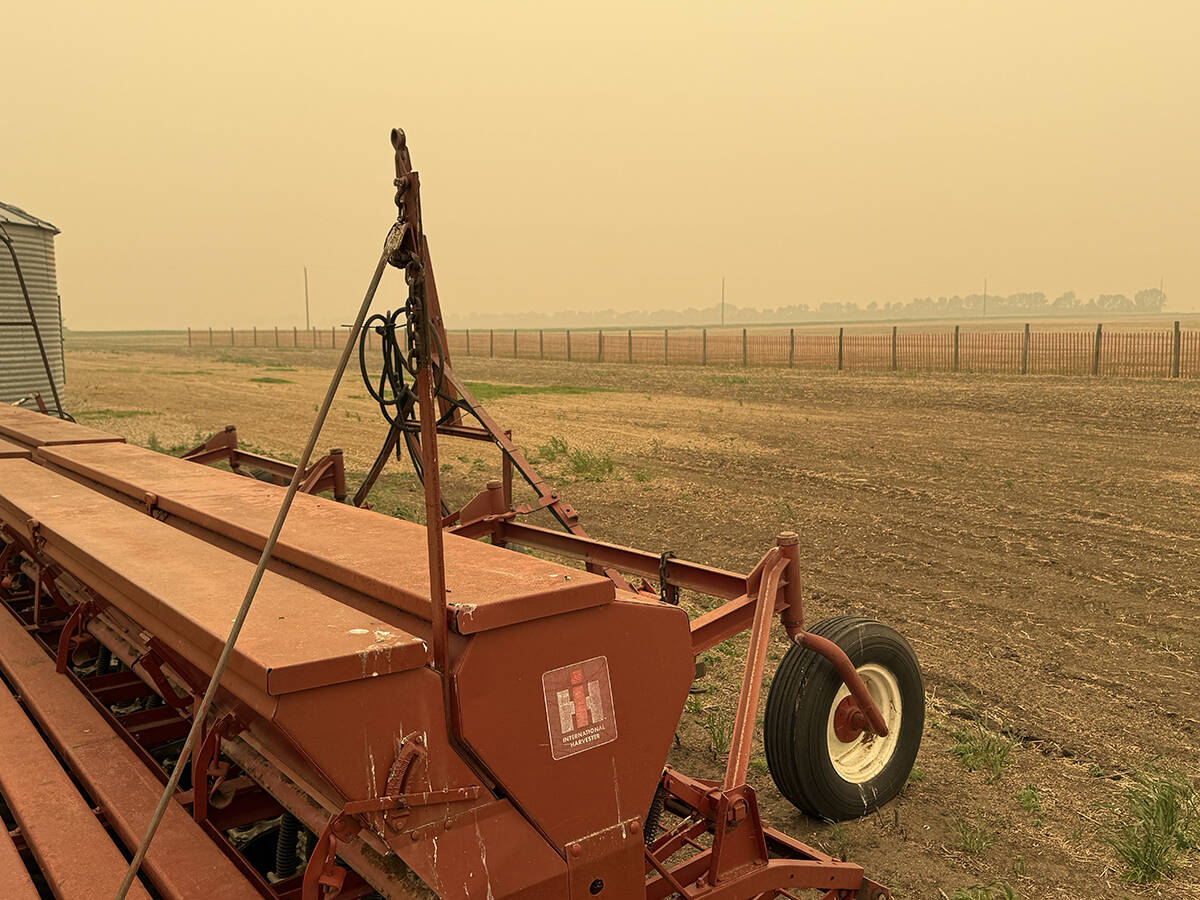GENEVA, Switzerland – Ontario soybean producer Liam McCreery, leading a delegation of more than half a dozen farm and agribusiness free traders, prowled the streets of Geneva last week telling anyone who would listen that Canada’s farm and food industry needs aggressive trade liberalization, not protectionism.
“Our strategy is to get other countries to understand our position in trade,” the president of the Canadian Agri-Food Trade Alliance, or CAFTA, said after a day of lobbying World Trade Organization negotiators July 27.
“We represent a large portion of Canadian agriculture who depend on trade for their living. We hope we can influence the debate here toward more ambition.”
Read Also

Wildfires have unexpected upside this year
One farmer feels smoke from nearby wildfires shrouded the July skies and protected his crop from the sun’s burning rays, resulting in more seeds per pod and more pods per plant.
Although its members would never be so blunt for the record, the CAFTA mission in Geneva is to convince other countries that the Canadian negotiators can be pushed to support more radical trade liberalization because that is what is best for most of the Canadian agricultural sector.
For a group formed four years ago by farm organizations and agribusiness companies that thought Canada’s balanced position was not aggressive enough on trade liberalization, CAFTA had impressive access in Geneva.
On July 26, for example, WTO agriculture negotiating committee chair Tim Groser had a busy day.
He was looking four days forward when he would leave the WTO job to return to New Zealand to become an opposition politician.
He had to spend part of the morning meeting a delegation of Norwegian farmers opposed to the WTO agenda and he had to convene the final agriculture negotiating session mid-afternoon before retiring to write a report on why negotiations had stalled and how they might be revived.
Yet between the Norwegians and the final session, Groser took almost 90 minutes to meet the CAFTA delegation.
During the week, the Canadian free traders also had sessions with the Australian negotiators, the European Union, Oxfam, Malaysia, Mauritius, Brazil, China, Thailand, Indonesia, New Zealand and India. In every session, CAFTA’s message was the same: freer trade is good for farmers. In negotiations, push for liberalization and resist protectionist exemptions.
CAFTA’s access in Geneva was aided by the fact that the group retains as its local representative John Weekes, a respected former Canadian WTO ambassador and trade negotiator.
But Weekes insisted it is more than just him helping to open doors. It also is the CAFTA free trade message.
“There is a lot of interest in the approach CAFTA takes because it is quite different from the projected and perceived Canadian position on trade over the past two decades,” said the man who had to preach that balanced Canadian position during two terms as Canadian WTO ambassador in the 1980s and the 1990s.
Of course there are critics of CAFTA and its message and tactics.
“I think people like CAFTA really don’t represent the Canadian position or the best interests of the entire Canadian sector,” said Ontario Egg Producers’ chair Carolynne Griffith who farms at Alvinston, Ont. and was in Geneva last week to monitor the talks for Canada’s supply managed sector. “I think we are seen here as a country with a balanced position that is unique in the world and that gives us credibility.”














